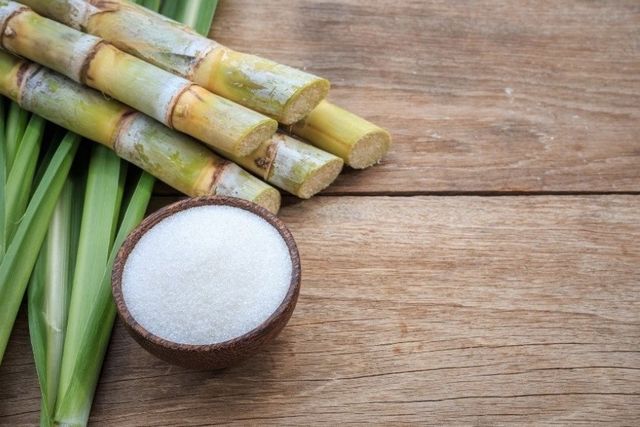A Comprehensive Summary of the Health And Wellness and Economic Ramifications of Walking Cane Sugar Processing on Regional Areas
Walking stick sugar handling plays a pivotal role fit the economic landscape of regional neighborhoods, supplying employment possibilities and boosting ancillary industries. Nonetheless, the health ramifications connected with high sugar usage can not be overlooked, as they contribute to rising rates of obesity and diabetic issues. This nuanced vibrant welcomes a critical assessment of exactly how neighborhoods can enhance economic gains while resolving the pushing wellness challenges they deal with. The expedition of sustainable methods and instructional efforts might simply hold the key to integrating these conflicting interests. What strategies might areas implement to achieve this balance?
Financial Benefits of Walking Cane Sugar Handling
Walking cane sugar handling provides substantial financial benefits that extend past the immediate farming sector. The growing and processing of sugarcane produce various job possibilities, from farming to production and distribution. This work generation not only sustains neighborhood economies yet likewise cultivates community development by giving steady income resources for family members.
Additionally, the sugar industry boosts ancillary organizations, including transport, devices supply, and packaging services (Cane Sugar Processing). As these sectors grow, they add to a much more durable economic framework, boosting general area durability. The export possibility of refined cane sugar additionally intensifies economic advantages, placing regions as competitive gamers in worldwide markets
Investment in contemporary processing centers can lead to enhanced productivity and effectiveness, thus decreasing waste and optimizing resource usage. This change not just benefits the local economy however additionally sustains sustainability efforts by decreasing environmental effects.
Moreover, the revenue produced from walking cane sugar handling can be reinvested in neighborhood framework, education and learning, and healthcare, advertising all natural community growth. Generally, the financial advantages of cane sugar processing are complex, offering a foundation for withstanding prosperity in agricultural areas.
Health And Wellness Threats Connected With Sugar Intake
Excessive sugar usage positions significant health threats that call for serious focus. High consumption of added sugars, specifically from processed beverages and foods, has actually been linked to countless wellness issues.
In addition, high sugar usage is connected with cardiovascular disease. Raised blood sugar levels can bring about insulin resistance, a precursor to numerous heart-related issues. In addition, sugar can have damaging effects on dental wellness, leading to cavities and periodontal condition, as germs in the mouth grow on sugar, creating acids that deteriorate tooth enamel.
Additionally, arising research recommends a possible link in between high sugar consumption and psychological wellness disorders, such as anxiety and anxiety. As areas grapple with these wellness risks, it comes to be essential to promote recognition and motivate healthier dietary options. Resolving sugar consumption is essential not just for specific health but also for the general wellness of regional communities, highlighting the requirement for thorough public wellness strategies.
Ecological Influences of Sugar Production
Often forgotten in conversations regarding sugar's effects is the substantial ecological influence of sugar manufacturing. The farming of sugarcane usually necessitates comprehensive land use, causing logging, loss of biodiversity, and disruption of local ecosystems. The conversion of forests and wetlands into sugar ranches can result in habitat destruction, threatening countless varieties and changing eco-friendly balance.
Moreover, sugar manufacturing is resource-intensive, consuming considerable quantities of water for irrigation. This can result in exhaustion of local water sources, detrimentally impacting both agricultural methods and neighborhood access to tidy water. In addition, the usage of chemical plant foods and pesticides in sugarcane farming can add to dirt deterioration and water air pollution, as overflow from these chemicals enters neighboring rivers and lakes, impacting marine life and human health and wellness.
The environmental footprint Find Out More encompasses the handling phase, where power consumption and waste generation more aggravate environmental issues. Air air pollution visit this site from melting sugarcane areas, in addition to greenhouse gas discharges, contribute to climate modification. Because of this, the environmental implications of sugar production warrant major consideration, prompting stakeholders to adopt even more sustainable techniques to reduce these damaging effects on local ecosystems and areas.
Work Production and Community Advancement
The ecological difficulties presented by sugar production are often reversed by its potential for economic benefits, specifically in job creation and area advancement. The walking cane sugar sector acts as a significant resource of work in numerous country areas, providing tasks throughout various ability levels, from agricultural labor to processing and circulation roles. This employment not just sustains specific families however likewise adds to the total financial vitality of local neighborhoods.
Moreover, the facility of sugar processing facilities promotes secondary companies, such as transportation services, devices supply, and maintenance suppliers. As these companies thrive, they create extra jobs and boost regional economic situations. The revenue generated from the sugar sector also causes boosted tax profits, which can be reinvested right into social work such as medical care, framework, and education advancement.
Additionally, the sugar industry commonly takes part in area advancement initiatives, such as supporting regional institutions and health programs, therefore improving the high quality of life for citizens. By fostering strong community connections and promoting economic growth, the walking cane sugar handling field plays an essential role in uplifting regional populations, making it a necessary component of lasting growth methods in sugar-producing regions.
Balancing Wellness and Economic Development
In navigating the complexities of walking cane sugar processing, a critical difficulty exists in balancing health factors to consider with financial growth. The sugar sector considerably adds to local economic situations by generating work, stimulating associated fields, and increasing tax obligation profits. Nonetheless, the health ramifications related to too much sugar intake can lead to chronic diseases such as obesity, diabetes mellitus, and cardio concerns, which can burden public health and wellness systems and diminish workforce performance.

In addition, regulatory frameworks can play an essential duty in directing sector practices towards more health-conscious and lasting methods. By promoting cooperation in between government bodies, health and wellness companies, and the sugar market, areas can browse the dichotomy of wellness and economic navigate here growth, ensuring that the benefits of cane sugar processing are equitably shared while prioritizing public wellness.
Conclusion
To conclude, the processing of cane sugar presents both substantial financial benefits and remarkable wellness threats for regional neighborhoods. While it promotes job creation and promotes regional growth, the associated wellness worries, specifically relating to obesity and diabetes, demand a careful balancing act. By promoting responsible consumption and investing in area education and learning and lasting methods, it is possible to take full advantage of economic advantages while decreasing damaging health and wellness results, therefore making sure a healthier future for neighborhood populaces.
In addition, sugar can have harmful results on oral health, resulting in cavities and gum tissue illness, as bacteria in the mouth grow on sugar, creating acids that wear down tooth enamel.
Attending to sugar consumption is crucial not just for individual health and wellness however additionally for the general health of regional neighborhoods, highlighting the demand for extensive public wellness approaches.
Regularly overlooked in conversations concerning sugar's ramifications is the substantial environmental influence of sugar production. The health and wellness effects linked with extreme sugar intake can lead to chronic illness such as obesity, diabetes mellitus, and cardiovascular issues, which can burden public health systems and diminish workforce performance.
